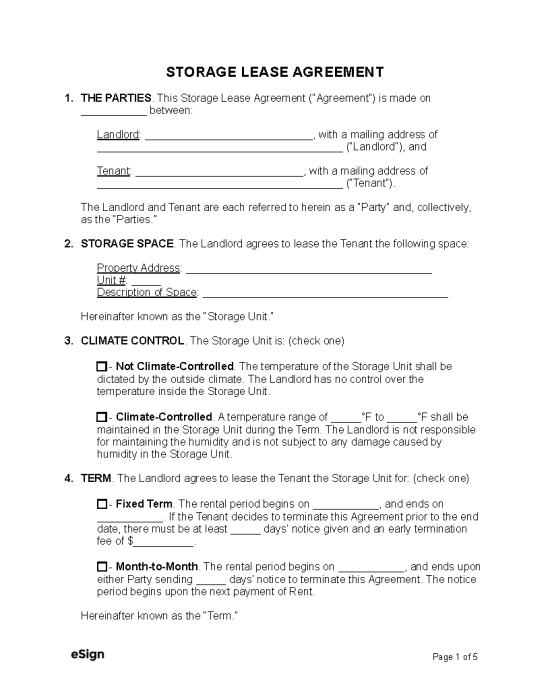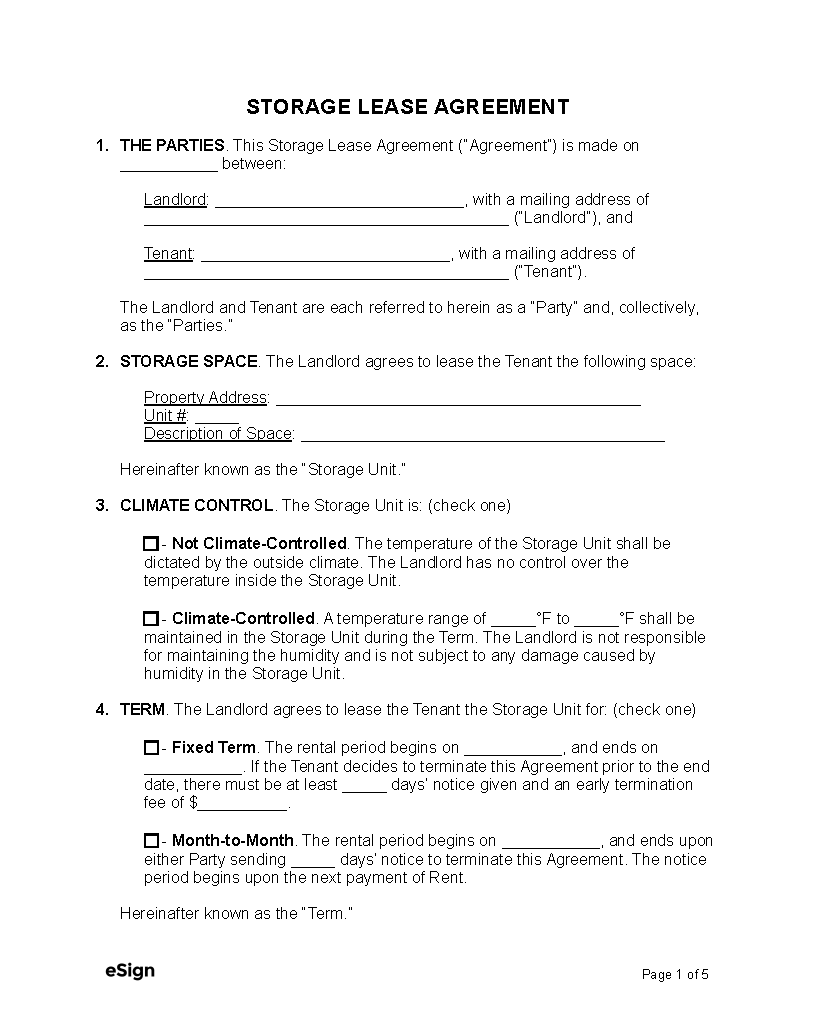Document Features
- Limitations – Defines what acts are prohibited in the unit and which items cannot be stored.
- Insurance – Establishes that the tenant is solely responsible for insuring the personal property stored in the unit.
- Locks – Determines which party provides a lock for the unit and whether a fee is charged if the lock needs to be broken to gain access.
- Abandonment – Enables the landlord to repossess the unit and sell the tenant’s property if the tenant does not pay rent or fails to keep the unit locked.
Prohibited Storage Items
Federal law prohibits the storage of:
- More than 25 gallons of flammable liquids outside of an approved storage cabinet[1]
- Hazardous waste[2]
- Stolen property from another state or country[3]
Landlords also commonly prohibit tenants from storing firearms, pets, perishable foods, and unregistered vehicles.
Rental Laws for Self-Storage Facilities
Owners and operators of self-storage facilities must understand the state laws regulating their rental agreements, as these differ from those that apply to residential and commercial leases. Some essential rules that self-storage facilities need to be aware of include:
- Lien Laws – Nearly all states automatically place a lien on the tenant’s property, which can be enforced to recover unpaid rent and overdue fees.
- Late Fees – Late fees are typically capped at a specific percentage of the total value of the stored property.
- Required Statements – State law may require the inclusion of specific legal statements in the self-storage lease agreement.
- Lease Termination – The notice requirements for terminating the lease often vary from those required by residential rental laws.

